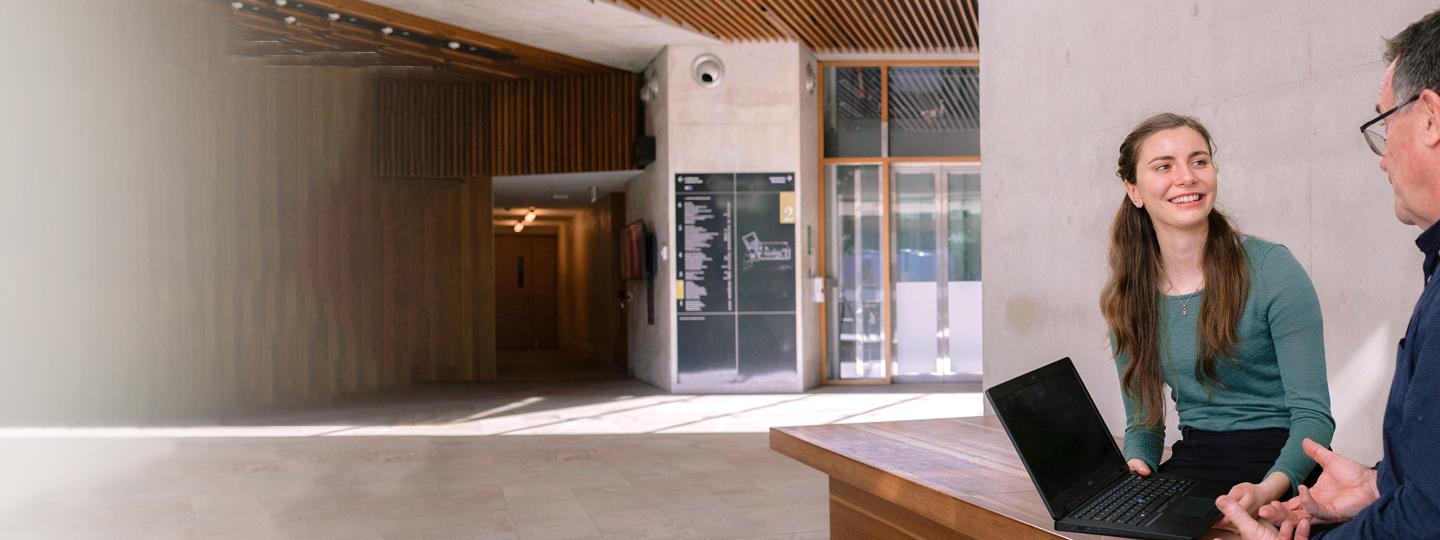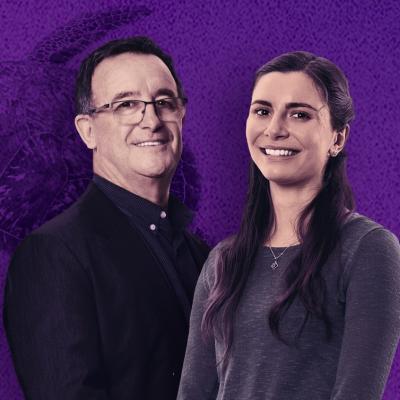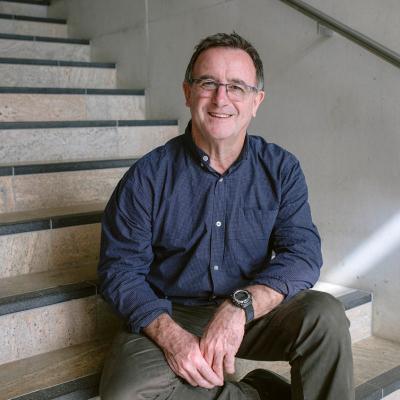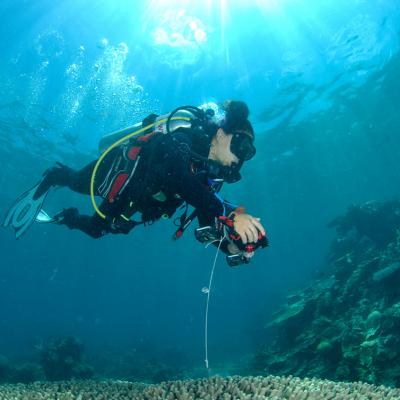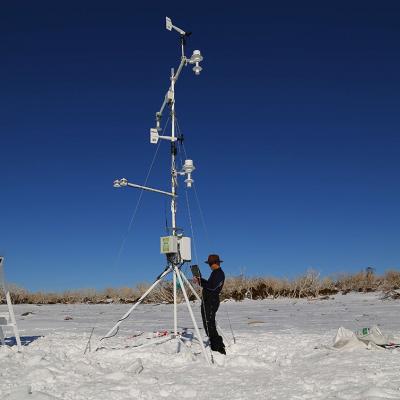Considering studying environmental science at university? You may have lots of questions. We're here to help you find answers.
- What does a day in the life of an environmental science student look like?
- What type of skills do you learn in an environmental science degree?
- Is an environmental science degree worth it?
- Is environmental science a good career?
We've interviewed a UQ student and academic to find out. Laura is an environmental science student and Associate Professor Ron Johnstone is a lecturer in environmental and marine science. They’ve teamed up to answer some of your questions and uncover how UQ can give you the skills you need to face the future, even when you don't know exactly what the future will look like.
Let's find out if environmental science sounds like the study area for you.
Since this article's original publish date in August 2020, Laura has graduated and now works as a graduate, on-site environmental advisor for a construction company, where she is currently involved in the delivery phase of a major civil infrastructure project.
What is it about UQ’s approach that makes us the most employable graduates in the state?
Ron: It’s the integration of the technical, academic knowledge and learning with exposure to industry and people who will actually potentially employ you. We have a number of courses where you do an internship, and you go and work in an office, in industry with the people who will potentially be your future employer. You really learn on-the-job skills, and at the same time, all the technical academic work is tailored to dovetail into that. And so there is a very strong effort to integrate those two sides of what you learn at UQ.
What does a day in the life of an environmental science student look like?
Laura: In a day in my life, we'd probably start with some lectures in the morning, maybe some biology. Then we have three-hour practicals where we look at plant biology or soil science, and then some more integrated tutorials in the afternoon, and then some more lectures to top it off.
What's the most interesting thing you've learnt that hasn't been part of your coursework?
Laura: The most interesting thing would be from one of the seminars I attended through UQ. We had someone who was talking about underwater volcanism and the processes around hydrothermal vents.
What opportunities do your students have to get hands-on experience in our industry?
Ron: There are a number of courses where students are proactively exposed to industry. And that can be where they undertake a team effort to solve a real problem for a real partner or a real client; that might be a local government agency or it might be a not-for-profit management or environmental group. They also have the chance to participate in an internship, where they're actually placed in industry, and they work at the tasks in the job that they might aspire to do.
What are some of the coolest jobs your former students are doing?
Ron: Some graduates have gone off to work in consulting companies for local government, and for state and federal government. For example, one of the students is now working for the Auditor General in Canberra. One graduate is working for WWF, another one has gone off to work for the Pew Foundation which is an international philanthropic foundation supporting environmental issues. And there was another student that is currently working for United Nations Environment Program. There's a whole range of opportunities out there that students seem to be quite easily slotted into.
What are some of the most valuable skills you've learned as part of your degree?
Laura: Some of the most valuable skills I have learned are definitely some of the hands-on practical experiences we get. I never expected the amount of field work that we get to do with UQ as well as the laboratory techniques we get to learn. It's really valuable, this statistical knowledge I now have, as well as some of the problem solving that we've done in classes with that hands-on work.
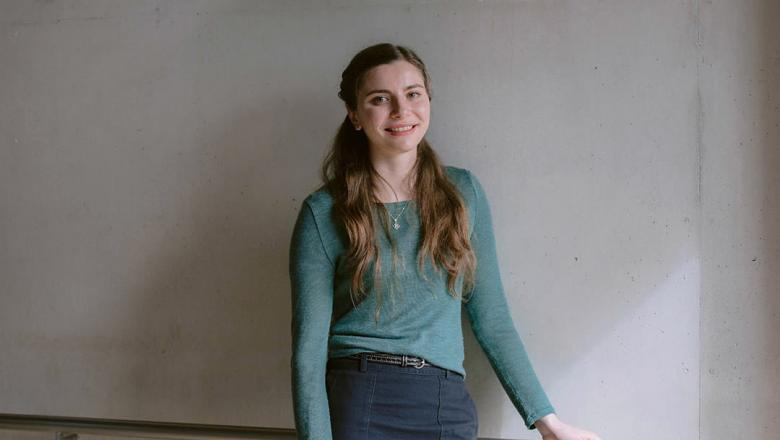
What do you think employers in your industry are looking for, and how do you think you UQ has equipped you with these skills?
Laura: Some of the most important skills I think employers would be looking for are definitely work experience, so we have different internship opportunities through here, as well as some work placements that we can find in the programs. Other things would definitely be the communication skills that you get through group projects as well as some of the solo work you can do with research as well.
If you could give me one piece of advice that would set me apart as a job candidate, what would it be?
Ron: I think it's to be open minded in your approach. Of course, in any interview you have to be clear and you have to be upfront with what you know and really make obvious what your strengths are, but in general terms, I think you have to be open minded to solving problems in new and different ways.
It's about being able to really take the knowledge and the skills you have, to be innovative. That inherently means being open minded to a different way of doing business – to take maybe old models and turn them into opportunities or to make a change through adapting adopting, refining, sometimes throwing them out and finding an entirely new solution.
What makes a good student, and are they the same things that make a good job candidate?
Ron: I think they strongly overlap. I think one of the things you really need to make sure of is that you are actively engaging – participate. UQ in particular, works hard to open the doors to make it easy to engage. And so it's really about taking that opportunity – make use of what's around you. I think at the same time, it’s about being open minded.
You'll be learning in ways at university that you probably have never undertaken in high school. Be open to that and happy to adapt. Take on new ideas, new knowledge, and then use your own strengths and insights to test them by being proactive and really engaging in a learning process.
What have you learned about yourself since you began your studies at UQ?
Laura: When I started at UQ, I never thought that I would want to pursue postgraduate study, but now that I've been here, I really think that having a PhD would be really useful. Or to do something in the field of soil science or plant research would be really interesting to me.
Also, while being at UQ, I've learned a lot of different organisational skills from planning what you're doing with your timetable, to making sure you've got everything prepared for your classes and assessment, and I guess it's a resilient process with all of your assessments.
Explore the Bachelor of Environmental Science or discover what it's really like to study other programs at UQ.

